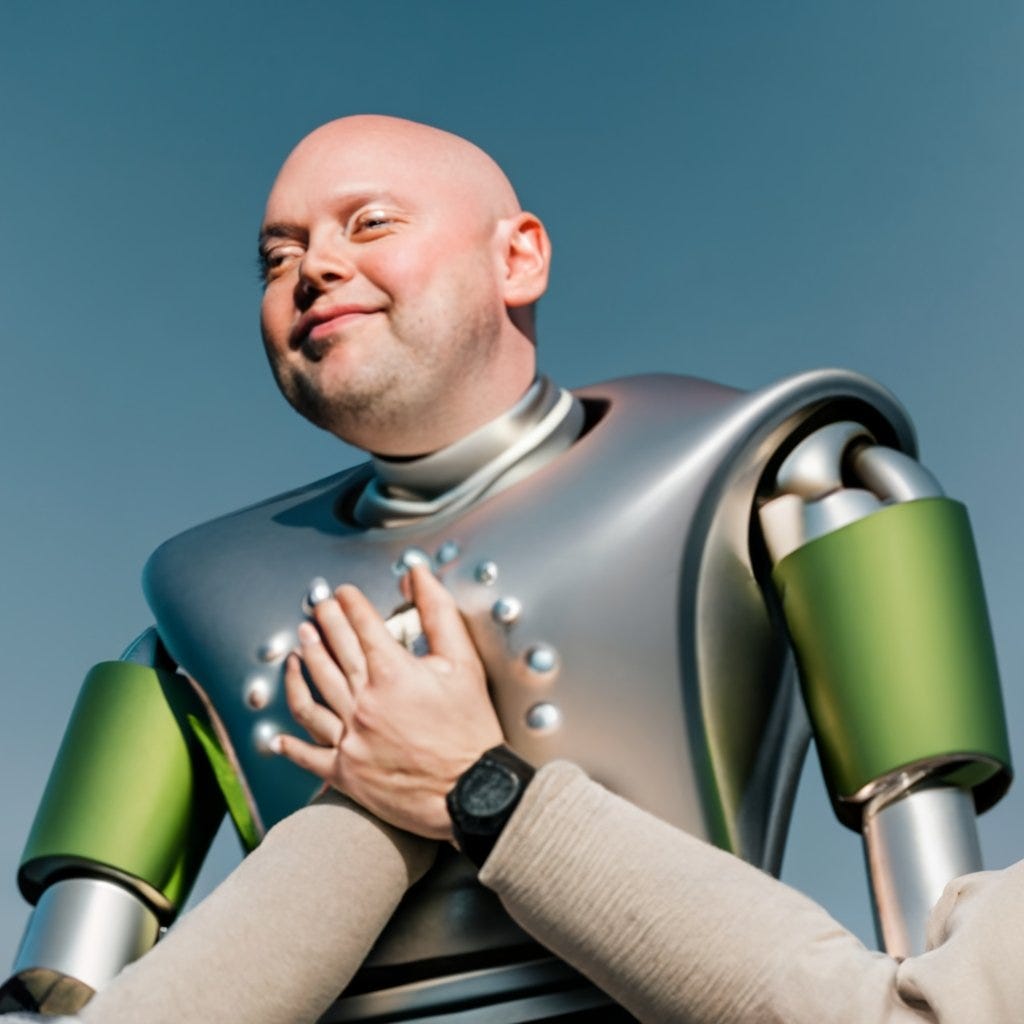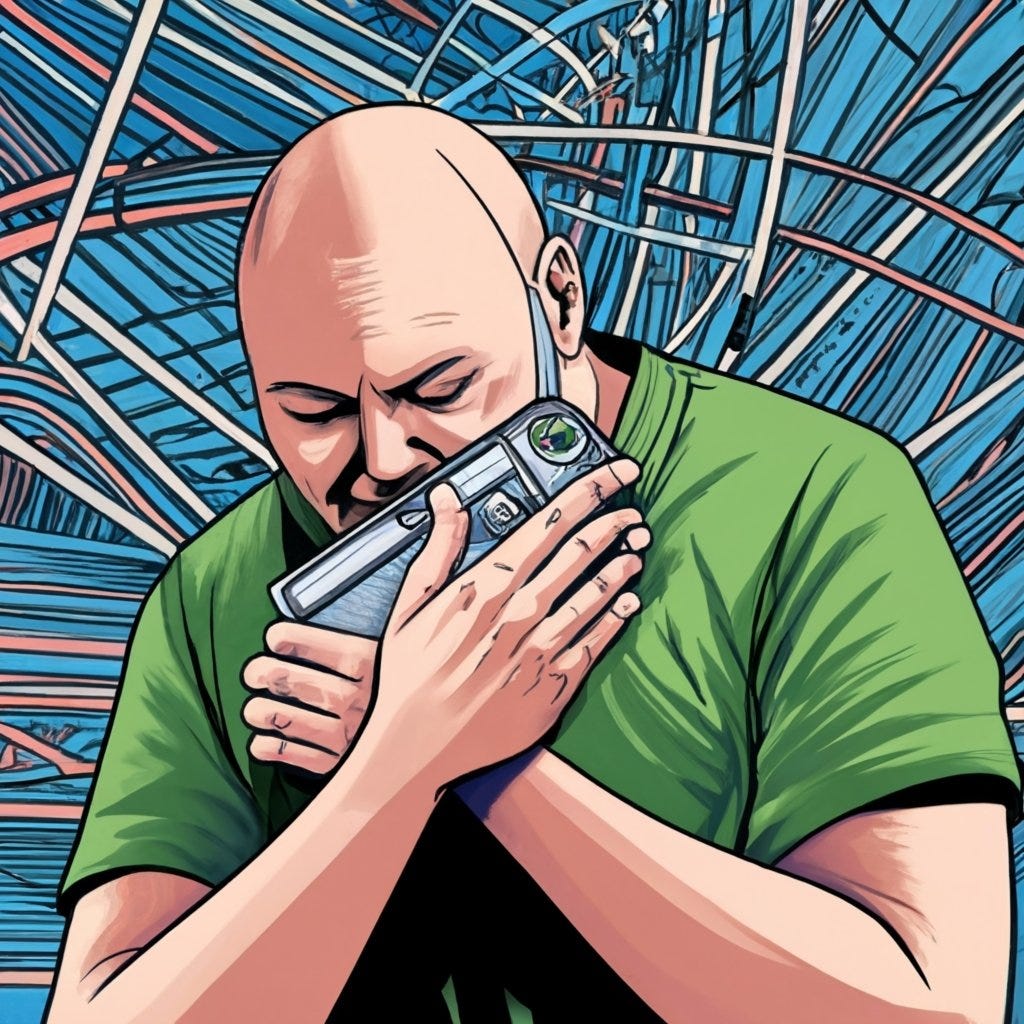Over the last week, many people have asked me what I think of Marc Andreessen’s Techno-Optimist’s Manifesto. Andreessen was one of the inventors of the web browser and founded a major venture capital firm. What do I think of the Manifesto? I think Andreessen really likes technology.
There’s nothing at all wrong with that. I like technology too. I just haven’t felt the urge to write a love letter describing all of the ways I like technology. But Andreessen does feel that urge, as he reveals with the very opening of the Manifesto entitled “Lies”
We are being lied to.
We are told that technology takes our jobs, reduces our wages, increases inequality, threatens our health, ruins the environment, degrades our society, corrupts our children, impairs our humanity, threatens our future, and is ever on the verge of ruining everything.
We are told to be angry, bitter, and resentful about technology.
We are told to be pessimistic.
The myth of Prometheus – in various updated forms like Frankenstein, Oppenheimer, and Terminator – haunts our nightmares.
We are told to denounce our birthright – our intelligence, our control over nature, our ability to build a better world.
We are told to be miserable about the future.
You know, “lie” is really a strong word. There are plenty of people who don’t like technology as much. I don’t think they are lying. I think they have an opinion. I think that technology impacts people in different ways, and while I may believe that my iPhone gives me joy, just below two out of three of my children in my life’s rankings, I do not begrudge those having other opinions or beliefs. One of the hallmarks of economics is that people have different preferences, so I am loathe to tell people that their preference is wrong.
Herein lies the paradox at the heart of Andreessen’s view: alongside the love of technology is a love of the market economy, especially one that lets people explore and adopt technology free of centralised authority. Some have referred to this as libertarianism, but that is not helpful.
We believe markets are an inherently individualistic way to achieve superior collective outcomes.
I can’t disagree with that as a broad take, but then it also gets beyond the usual economic presumptions.
We believe the market economy is a discovery machine, a form of intelligence – an exploratory, evolutionary, adaptive system.
This is pretty … imprecise. And then you get …
We believe there is no conflict between capitalist profits and a social welfare system that protects the vulnerable. In fact, they are aligned – the production of markets creates the economic wealth that pays for everything else we want as a society.
… which is historically not true. Maybe in principle, but before you “believe” something, perhaps take a breath and work out why this hasn’t actually panned out.
But the real paradox is this: Andreessen is arguing for people to be techno-optimists and, indeed, tag themselves as “effective accelerationists” (you’ll occasionally see their label as e/acc). But the history of technological progress is the history of overcoming problems with existing technology. It is by innovating in order to hit the trade-offs that exist and relax constraints. It is to focus on the costs of technology and hopefully wipe them out.
Andreessen’s own history is a case in point. The Internet had existed for decades prior to it becoming useful. The primary cost is that using the Internet required clunky technological tools that made peer-to-peer communications possible but were very poor in terms of one-to-many flows of information. The web browser was invented to solve that cost. To make it easier to use the technology. It requires empathy towards what frustrates people. It requires a belief that regardless of the extent of technical achievement, it is “not good enough” until it is accessible and useful. It requires the problems with technology to be confronted head-on. It requires a mindset that challenges the way a technology is evolving in a way that is opposite to those who simply have faith in a technology.
My point here is that if everyone believed in the list of things that Andreessen is asking them to believe in, it is far from obvious that it would lead to a world that confirmed those beliefs. The very diversity that Andreessen extolls as a benefit of a market system is a diversity of preferences. It is a diversity of opinions regarding how useful a technology is. And to really progress from a technological standpoint requires challenge from those pessimistic about a technology’s prospects. Build a society of techno-optimists, and there is a good chance it will be a society of technological frustration.
The Techno-Optimist Manifesto is born of a challenge to those who believe that technology has significant costs, but, at the same time, it fails to even consider that it is the challenge and response that is the point. To see this as a fundamental or existential fight between optimists and pessimists is to mischaracterise everyone involved and set the world up for failure.
So let me end with my own one-sentence manifesto as an alternative to the 5,000 plus word missive:
I believe everyone needs to calm down.
Now, enjoy these attempts to use AI to generate images for this newsletter …





